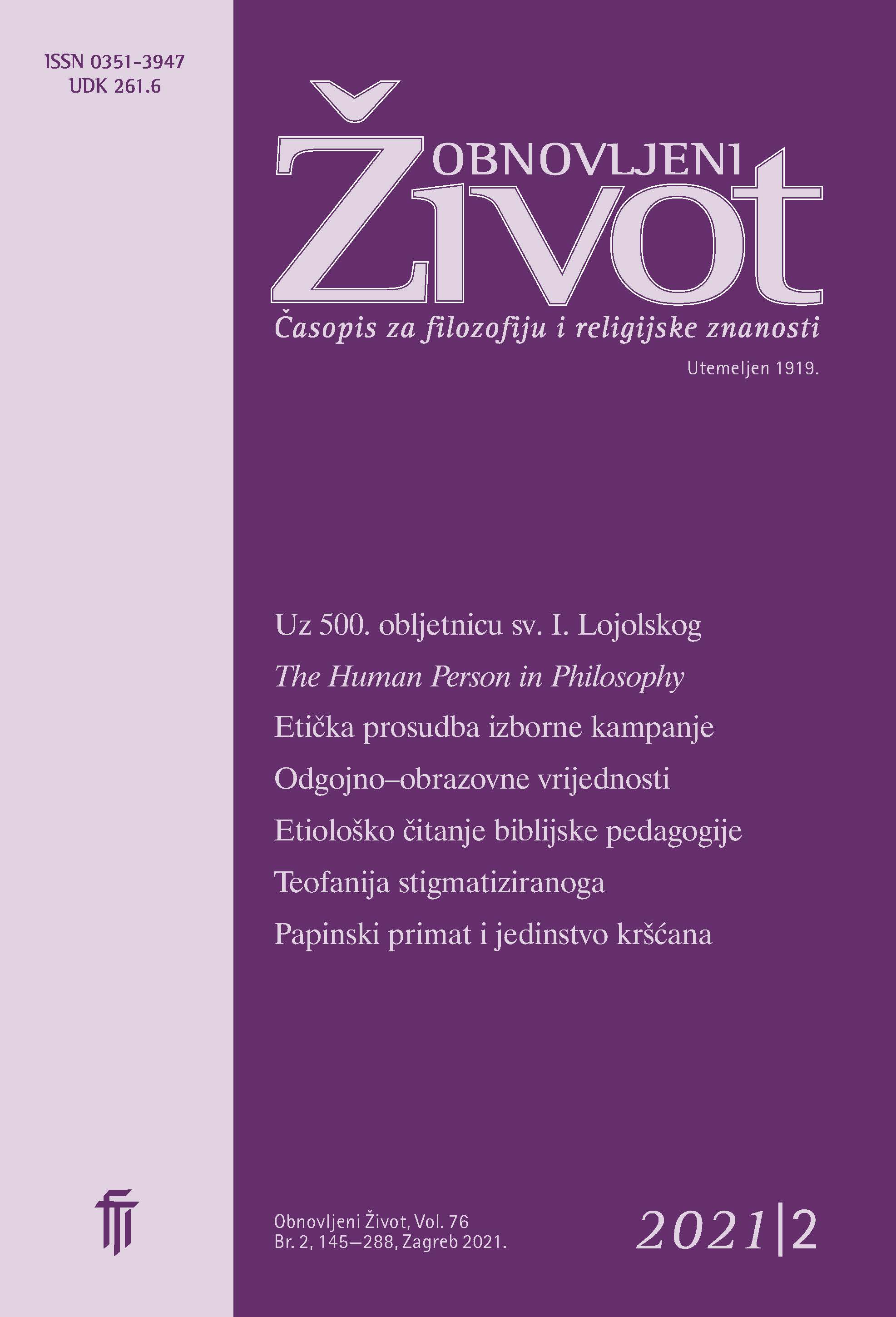»The fathers have eaten sour grapes, and the children's teeth are set on edge« (Jer 31,29)
An Etiological Reading of the Old Testament Pedagogy
Keywords:
pedagogy, etiology, hermeneutics, grapes, fanatic, surrogacyAbstract
One of the key questions affirmed in this work was to what extent was the Old testament pedagogy in service of theological aetiology (etiology). After the examination of a selection of biblical texts and family stories, we can conclude that the Old testament pedagogy like a hair plait is fold with etiology. At the first glance biblical family stories seem to be primarily involved with the upbringing, only in the second ‘layer’ we notice etiological intent of the biblical writer. Hence, a majority of pedagogical biblical texts are, one way or the other, in service to aetiological and hermenutical ends. What does this really mean? With etiology, a specific biblical literary and hermenutical form, a biblical writer regularly demonstrate a theological intent by covertly implementing it into a story. Among several biblical family stories presented here, with fathers in their upbringing position, one of the most representative example of pedagogy–etiology is the episode in the lives of Sara and Abram and their sons Ishamael and Isaac. At the
surface level, the story is a story of family complications, but at a deeper level it proves to be predominantly an etiological story. Clearly, biblical writer here uses this family story to announce, in paradigmatic form, the two laws. The law of nature and flesh (Ishmael) and the law of the spirit, promise and faith (Isaac). This becomes evident in the New testament text of the Pauline Epistle to Galatians.
Downloads
Published
Issue
Section
License
Jednom prihvaćeni članak obvezuje autora da ga ne smije objaviti drugdje bez dozvole uredništva, a i tada samo uz bilješku da je objavljen prvi put u Obnovljenom životu. Uredništvo će obavijestiti autora o prihvaćanju ili neprihvaćanju članka za objavljivanje.
Članci objavljeni u časopisu se, uz prikladno navođenje izvora, smiju besplatno koristiti u obrazovne i druge nekomercijalne svrhe.


